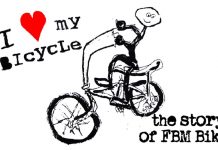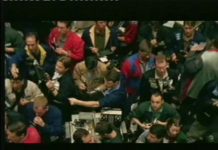The birth of highly sustainable energy sources and other resources presents a double edged sword for the business sector. A company can remain vital and viable if the products they sell represent the cutting edge of technological advancement, but that same innovative spirit can also spell disaster for their bottom line. Businesses don’t want you to buy a single light bulb that can burn throughout your lifetime; they want you to buy many light bulbs over the course of your life. Therefore, the development and ultimate success of sustainable products requires a new economic model. The End of Ownership follows architect Thomas Rau as he puts one such model into motion. Shortly after Thomas Edison invented the light bulb, a committee gathered to assess the economic feasibility of such a product. They decided to maximize their profitability by manufacturing the light bulb to burn at no more than 1,000 hours. By imposing limitations on the performance of the bulb, they ensured that many more bulbs could be sold. In Rau’s view, their decision also created an environment rife with waste that placed an unnecessary burden on the consumer. Rau approached the Phillips technology company with a proposal: produce lighting solutions that work for the consumer, and assume the power costs as their own. In theory, the benefits of such an approach would be desirable for the consumer, the business, and the environment. The consumer essentially pays a rental fee for their lighting. Since the company is footing the electric bill, the product they provide is carefully designed to operate with extreme ease and efficiency to keep costs low. Currently, the program is rolling out across the business sector, and is resulting in astronomical energy savings for all involved. Rau’s provocative new economic energy model has additional applications beyond the light bulb. The public housing sector has expressed interest in creating more efficient appliances throughout their properties as a means of saving money for their tenants. The End of Ownership is an invigorating look at a potential future that can work better for all of us. Most valuably, it exposes a troubling current that runs through our modern culture: the things we own have a tendency to own us.
POPULAR PICKS
LATEST ADDITIONS
© Copyright 2017-2022 - Gratis Global Ltd. All rights reserved.

































